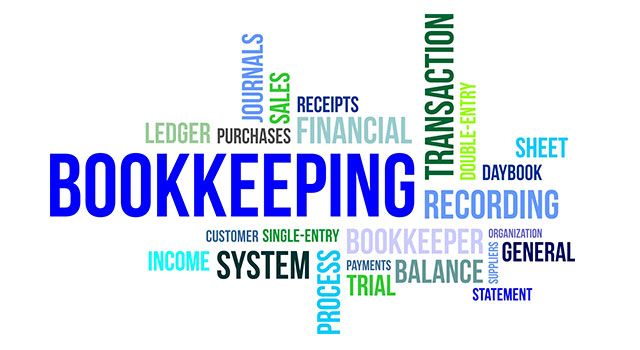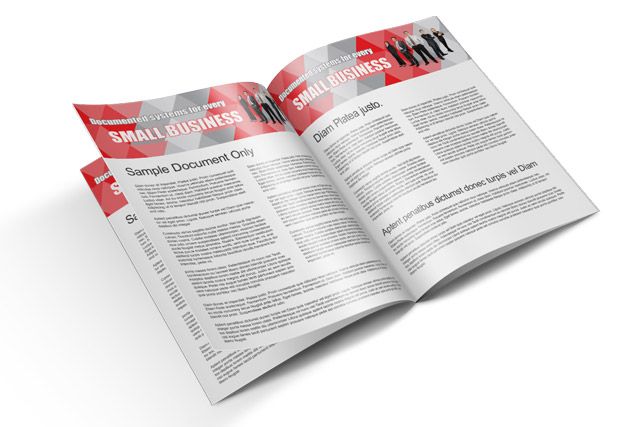
Why Do Some Accountants Offer Chief Financial Officer Services?
Issue 0016
The firms, which are offering Chief Financial Officer (CFO) services to their clients, are doing so, based on market feedback from surveys conducted by companies such as CCH, MYOB, Smithink2020 and others, which have indicated that a significant number of SMEs require a wider range of services to be supplied to them.
Surveys And Reports Conducted
In the CCH survey, completed in April 2013, the response from the 1,040 SME operators interviewed, indicated that SME operators require greater assistance in:
- management of costs;
- management monitoring;
- business plan preparation;
- assistance in raising capital or loan funds; and
- expansion advice.
Accountants, who are offering business advisory services, can assist their clients with these items.
Activities Included In Offering CFO Services
Activities, which an accountant might include in a CFO service, include:
- Ongoing review of working capital requirements.
- Analysing the debtors, stock, work in progress and bank accounts.
- In-depth review of your monthly financial accounts that have been prepared on a management basis.
- Establishment of appropriate Key Performance Indicators (KPIs) for the business and then monitoring those KPIs each month.
- Advising you and your senior management of any adverse financial performance, which has been revealed from the KPIs.
- Preparation of a comparison of actual financial performance to budgets.
- Alerting you and your management team of any trends, different from those originally planned for the business.
- Assistance in the preparation of business plans.
- Supplying in-depth project cost reviews.
- Undertaking insurance reviews.
- Reviewing government grants that might be suitable for your business.
- Undertaking an annual valuation of your business, so the business’ valuation can be taken into account in the determination of the overall wealth position of your business.
- Assistance in meeting your long-term targets.
- This might relate to some planning around what you consider your business is worth.
Your accountant could then prepare a valuation and compare your value with his/hers. If the accountant’s valuation (which would normally be based on normal valuation methods used by a valuer) is lower than yours, your accountant should then be able to identify the difference as the ‘valuation gap’.
An accountant, offering business advisory services, would then have a conversation with you, to determine the strategies and business procedures to be implemented over a period of time, so that the price a purchaser might be prepared to pay has bridged the ‘valuation gap’.
‘Bundled’ Package Of Services
You might prefer to receive a ‘bundle’ of services, rather than picking the individual services you might require.
The ‘bundled’ package of services could include:
- Annual Accounts
- Tax Returns
- Specific information, such as:
- monitoring what’s going on in your industry, particularly from a financial point of view; and
- preparation of some specialist industry seminars, based on your industry from an accountant’s point of view. Your accountant could also present seminars to your team on a regular basis (eg quarterly).
- The accountant could create the ‘role of the CFO’ within your business, so you have a ‘virtual CFO’.
- The accountant could organise the benchmarking of your business against other businesses in Australia, as well as the ATO’s benchmarks.
- The accountant could prepare a business health check report for your business, on a quarterly, half-yearly or annual basis
- The accountant could assist in preparation of Budgets and Cashflow Forecasts for the next 12 months
- Preparation of a Business Plan or the update of your Business Plan
Cashflow Cycles
Other services, which you might be interested in your accountant supplying to you, include explanation of the cashflow cycle within your business. This relates to:
- the number of days investment you have in stock;
- the number of days investment in debtors; and
- the ‘lock-up’ period for purchases within your business.
This will assist you to understand how the cashflow cycle works for your business.
Sales Improvement
You might be interested in understanding the ‘sales funnel’ approach to achieving a satisfactory overall sales figure.
This relates to how many proposals you need to make, based on your normal conversion percentage, so you can ensure your sales team has been set realistic targets on the amount of ‘cold calls’ they have to make and the amount of sales proposals that have to be submitted, if your business is going to achieve its overall sales target.
Debtors’ Days Outstanding
Debtors’ days outstanding is a very controversial figure at present. According to Dun & Bradstreet, the average is currently 54 days. Your accountant should be able to assist you with the complete review of your debtors’ system, to see where the changes can be made and new systems introduced, to contribute to a reduction in debtors’ days outstanding. This will then give you an immediate cashflow benefit, because the cash you will receive from a reduction in debtors’ days outstanding goes straight to your bank account and is available within your bank account, to assist you to meet commitments to creditors as per your creditors’ stated payment terms.
Stock Evaluation
Stock evaluation is another area where an accountant, offering business advisory services, can assist. If you’re carrying stock, your accountant would utilise a stock matrix chart, to review the different types of stock, based on the unit sales value and the gross profit percentage, relating to the individual stock component. This will assist in identifying the ‘star’ stock and the ‘poor’ stock for your team. Your accountant can also assist in identifying the ‘cash cows’, the items within your business, which you must have, but generates very little gross profit percentage.
The evaluation of stock could relate to these terminologies:
- ‘Stars’ – high volume, high margin – this is the type of stock you should be selling.
- ‘Cash Cows’ – high volume, low margin – these are the stock items which, whilst you don’t make much money from them, you need to have. They may even be ‘attractions’ to get people to come to your business.
- ‘Problem Lines’ – low volume, high margin – last year’s fashions or products for which the expiry dates are fast approaching.
- ‘Dogs’ – low volume, low margin – you should probably be trying to remove these types of stock from your business, as these stock items will neither generate much activity at all nor will they generate very little profit.
Key Performance Indicators (KPIs)
Another activity would include analysing the KPIs and ratios from the financial accounts, budgets and cashflow forecasts for your business and comparing these to your pre-determined targets.
Accountants Can Assist
The types of services described in this article, relating to CFO services, are services accountants, delivering business advisory services to their clients, can supply
If you’re interested in a wider range of services being offered to you, don’t hesitate to have a discussion with your accountant. If your accountant is unable to supply the services, to which this article is referring, we’d be happy to assist you by giving an introduction to an accountant within your location, who can supply these types of services. Please send an email to peter@essbiztools.com.au with your location and postcode and he/she will send you the names of accountants within your area, who are offering these types of services.
To assist you in the understanding of the calculation of debtors’ days outstanding, we have pleasure in attaching a ‘Debtors’ Days Outstanding Calculation’ sheet, which you can download below. Please feel free to utilise this calculation sheet and take it with you for your next discussion with your accountant, so we can review the evaluation of your debtors’ days outstanding.
Past Posts
-
 Innovation is Important for SMEs
Innovation is Important for SMEs -
 6 Steps to Boost Your Productivity and Profits
6 Steps to Boost Your Productivity and Profits -
 Tax Incentives For Early Stage Investors
Tax Incentives For Early Stage Investors -
 ESIC Targets SMEs, Inventors, Young Companies
ESIC Targets SMEs, Inventors, Young Companies -
 Early Stage Innovation Company Investor Opportunities
Early Stage Innovation Company Investor Opportunities -
 Will You Have an ESIC Story?
Will You Have an ESIC Story? -
 Are you Receiving a CFO Service from your Accountants?
Are you Receiving a CFO Service from your Accountants? -
 Succession Planning
Succession Planning -
 Business Plans
Business Plans -
 The Year for Business Advisory Services!
The Year for Business Advisory Services! -
 Are you Aware of the PPSR?
Are you Aware of the PPSR? -
 SME Operators – Accountants can Help you with Debtors’ Ma...
SME Operators – Accountants can Help you with Debtors’ Ma... -
 Happy New Financial Year
Happy New Financial Year -
 The Finalisation of the ESIC Legislation will be a Great ...
The Finalisation of the ESIC Legislation will be a Great ... -
 A Business Evaluation Review Can Assist You
A Business Evaluation Review Can Assist You -
 June is a Great Time to Prepare a Business Plan
June is a Great Time to Prepare a Business Plan -
 Businesses Need a Broad Succession Strategy
Businesses Need a Broad Succession Strategy -
 Innovation Companies are a Great Opportunity for SMEs
Innovation Companies are a Great Opportunity for SMEs -
 The PPSR – are you aware of it and how it can affect your...
The PPSR – are you aware of it and how it can affect your... -
 Debtors Management - Vital for Business Success
Debtors Management - Vital for Business Success -
 How can your Accountant assist you?
How can your Accountant assist you? -
 The Personal Property Securities Register – how do you pr...
The Personal Property Securities Register – how do you pr... -
 Legal Advice is Essential for Business Success
Legal Advice is Essential for Business Success -
 Is your accountant your trusted adviser
Is your accountant your trusted adviser -
 Is your accountant famous for adding value?
Is your accountant famous for adding value? -
 Portfolio Allocations Are Important For Effective Management
Portfolio Allocations Are Important For Effective Management -
 The Challenges To Navigate In 2015
The Challenges To Navigate In 2015 -
 Business Plans Are Important For All Businesses
Business Plans Are Important For All Businesses -
 Entrepreneurs’ Infrastructure Program
Entrepreneurs’ Infrastructure Program -
 Digital Disruption Is A Major Concern
Digital Disruption Is A Major Concern -
 Court Case Decisions on the Personal Property Securities ...
Court Case Decisions on the Personal Property Securities ... -
 Personal Property Securities Act Presents Businesses A "T...
Personal Property Securities Act Presents Businesses A "T... -
 Do You Require Additional Financial Services?
Do You Require Additional Financial Services? -
 Personal Property Securities Act – How Does It Affect Sma...
Personal Property Securities Act – How Does It Affect Sma... -
 Business Health Checks For Your Business
Business Health Checks For Your Business -
 Why Do Some Accountants Offer Chief Financial Officer Ser...
Why Do Some Accountants Offer Chief Financial Officer Ser... -
 Getting Assistance From Your Accountant To Better Manage ...
Getting Assistance From Your Accountant To Better Manage ... -
 Identifying The Services You Want To Receive From Your Ac...
Identifying The Services You Want To Receive From Your Ac... -
 What Is Business Advisory Services?
What Is Business Advisory Services? -
 Accountants Can Offer More Services Than Just Tax Returns
Accountants Can Offer More Services Than Just Tax Returns -
 Being Kept In The Loop By Your Accountant
Being Kept In The Loop By Your Accountant -
 Personal Property Securities Register – Have You Develope...
Personal Property Securities Register – Have You Develope... -
 Reducing Debtors' Days Outstanding
Reducing Debtors' Days Outstanding -
 Management of Costs - An Overview
Management of Costs - An Overview -
 Succession Planning - Why Is It Necessary?
Succession Planning - Why Is It Necessary? -
 Safe Guarding your Business under the Personal Property S...
Safe Guarding your Business under the Personal Property S...




































